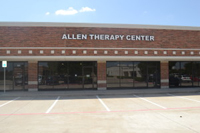Endoscopic Spine Surgery is a minimally invasive procedure used to treat various spine conditions such as herniated discs, spinal stenosis, and degenerative disc disease. Compared to traditional open surgery, endoscopic spine surgery can offer a faster recovery time, less pain, and minimal scarring. However, as with any surgical procedure, rehabilitation and therapy are critical to achieving optimal results. In this blog post, we will take a closer look at what therapy is like after endoscopic spine surgery.
1. Physical Therapy: Physical therapy is an essential part of the rehabilitation process after endoscopic spine surgery. Your therapist will work with you to develop exercises and movement strategies that will help to improve your flexibility, strength, and range of motion. Initially, physical therapy may focus on gentle movements such as walking, standing, and light stretching. As you progress, your therapist will increase the intensity and difficulty of the exercises.
2. Pain Management: While endoscopic spine surgery is less invasive than traditional open surgery, some pain and discomfort are to be expected. Your doctor will prescribe pain medication to help manage your symptoms. However, over time, your body will become more tolerant of pain medication, and you may need to explore other pain management techniques such as heat and cold therapy, massage, or acupuncture.
3. Emotional Support: Surgery, regardless of how minimally invasive, can take a toll on your emotional well-being. It is not uncommon for patients to experience feelings of anxiety, frustration, or sadness during the recovery process. Your therapist can provide emotional support and help you develop coping strategies to manage these feelings.
4. Return to Work: Returning to work after endoscopic spine surgery can be challenging, particularly if your job involves physical labor or prolonged periods of sitting or standing. Your therapist will work with you to develop a return-to-work program that is tailored to your specific job requirements. They may also provide advice on ergonomics and workplace modifications to ensure a smooth transition back to work.
5. Long-Term Care: As with any surgical procedure, the goal of endoscopic spine surgery is not just to manage pain and restore movement but to ensure long-term health and wellness. Your therapist will design a maintenance program that includes periodic check-ins to ensure that you are maintaining your progress, managing any new symptoms or conditions, and addressing any concerns you may have.
Endoscopic Spine Surgery can offer patients a viable alternative to traditional open surgery. However, to achieve optimal results, rehabilitation and therapy are critical. The benefits of therapy after endoscopic spine surgery extend far beyond physical healing and include emotional support, pain management, and long-term care. If you are considering endoscopic spine surgery, speak to your doctor about what to expect from therapy and rehabilitation, and be sure to choose an experienced and knowledgeable therapist who can guide you through the process of recovering and returning to your everyday life.
Allen Physical Therapy Center
Contact Us Directly: 972-359-1288
 1223 McDermott Suite 50, Allen, TX 75013
1223 McDermott Suite 50, Allen, TX 75013
Phone: 972-359-1288
Fax: 469-281-2458
Hours: Monday-Thursday 7 a.m. – 7 p.m.
Friday 7 a.m. – 5 p.m.
